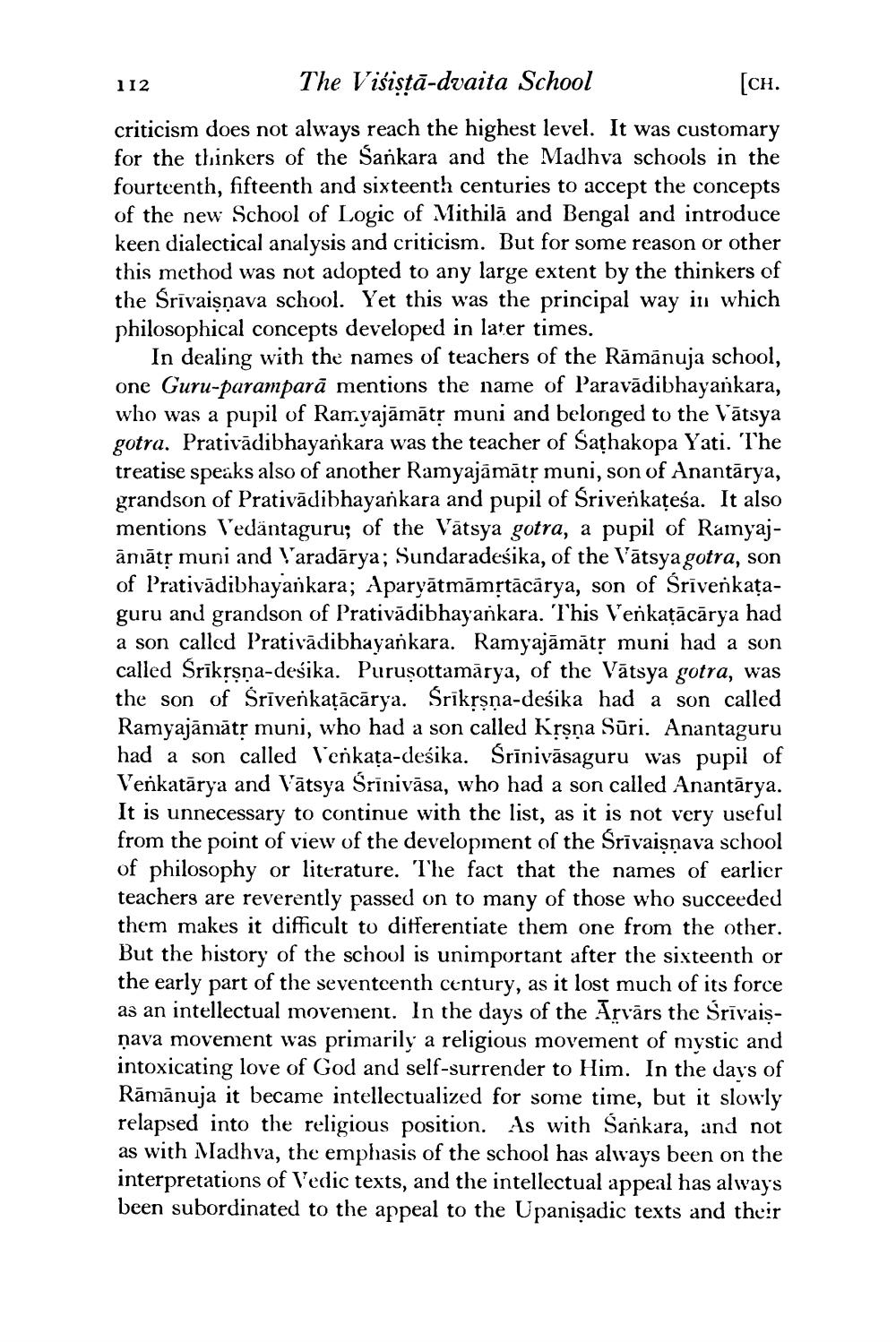________________
112 The Višistā-dvaita School
CH. criticism does not always reach the highest level. It was customary for the thinkers of the Sankara and the Madhva schools in the fourteenth, fifteenth and sixteenth centuries to accept the concepts of the new School of Logic of Mithilā and Bengal and introduce keen dialectical analysis and criticism. But for some reason or other this method was not adopted to any large extent by the thinkers of the Srīvaisnava school. Yet this was the principal way in which philosophical concepts developed in later times.
In dealing with the names of teachers of the Rāmānuja school, one Guru-paramparā mentions the name of Paravādibhayankara, who was a pupil of Ram yajāmātě muni and belonged to the Vātsya gotra. Prativādibhayankara was the teacher of Sathakopa Yati. The treatise speaks also of another Ramyajāmāts muni, son of Anantārya, grandson of Prativādibhayankara and pupil of Srivenkatesa. It also mentions Vedäntaguru; of the Vātsya gotra, a pupil of Ramyajānāts muni and l'aradārya; Sundaradesika, of the Vātsya gotra, son of Prativādibhayankara; Aparyātmāmṛtācārya, son of Śrīverkațaguru and grandson of Prativădibhayankara. This Venkatācārya had a son called Prativādibhayankara. Ramyajāmātņ muni had a son called Srikrsna-desika. Puruşottamārya, of the Vātsya gotra, was the son of Śrīverkațācārya. Śrīkrsna-deśika had a son called Ramyajānātņ muni, who had a son called Krsna Sūri. Anantaguru had a son called Venkața-desika. Srīnivāsaguru was pupil of Venkatārya and Vātsya Srinivāsa, who had a son called Anantārya. It is unnecessary to continue with the list, as it is not very useful from the point of view of the development of the Srīvaisnava school of philosophy or literature. The fact that the names of earlier teachers are reverently passed on to many of those who succeeded them makes it difficult to differentiate them one from the other. But the history of the school is unimportant after the sixteenth or the early part of the seventeenth century, as it lost much of its force as an intellectual movement. In the days of the Arvārs the Srīvaisņava movement was primarily a religious movement of mystic and intoxicating love of God and self-surrender to Him. In the days of Rāmānuja it became intellectualized for some time, but it slowly relapsed into the religious position. As with Sankara, and not as with Madhva, the emphasis of the school has always been on the interpretations of Vedic texts, and the intellectual appeal has always been subordinated to the appeal to the Upanişadic texts and their




